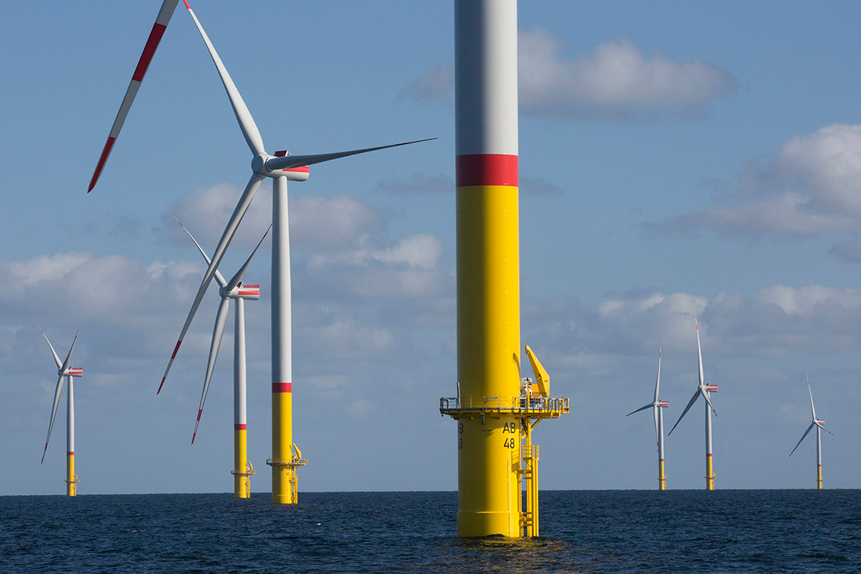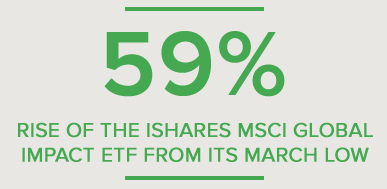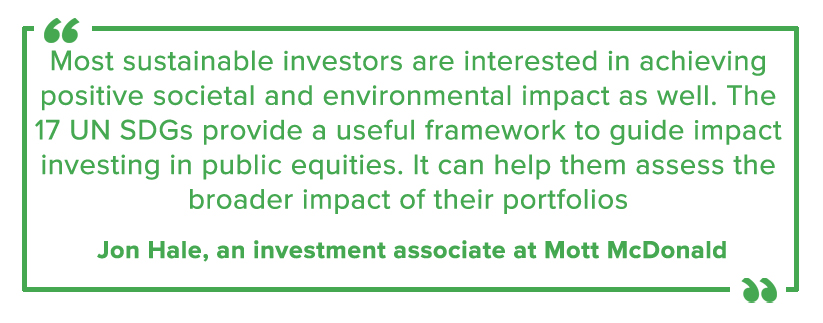
Tuesday, September 15, 2020
A boost in sustainable investing lifts the iShares MSCI Global Impact ETF
By Century Financial in 'Brainy Bull'


The iShares MSCI Global Impact ETF [SDG] has flourished in 2020, as growing environmental, social and governance (ESG) concerns encourage more investors to align their investments with sustainable companies.
The SDG began the year at $65.20 on 2 January, climbing as high as $72.60 on 21 February before the coronavirus crisis battered the markets and sent it as low as $51 on 23 March.
The ETF rallied 59% through 1 September, hitting a high of $82.4 on 2 September. As of 11 September, it sits at $79.80.
The fund’s year to date daily total return, based on Yahoo Financedata on 11 September, is 13.1% against net assets of $111.7m.
In comparison, the year-to-date daily total returns of two similar ETFs, the iShares MSCI World ESG Enhanced UCITS ETF and the Impact Shares Sustainable Development Goals Global Equities ETF, have dropped by 2.8% and 7%, respectively.


Investing for a positive impact
The iShares MSCI Global Impact ETF seeks to track the investment results of the MSCI ACWI Sustainable Impact Index, which is composed of positive impact companies that derive majority of their revenues from products and services that address at least one of the 17 United Nations Sustainable Development Goals (UN SDGs).
First launched on 20 April 2016, SDG has 129 holdings as of 11 September. Its holdings are made up of large-cap companies across developed markets.
East Japan Railway [9020] has the biggest weighting in the fund at 4.2%, followed by Johnson Matthey [JMAT] at 4.1%, Procter & Gamble [PG] at 4%, Vestas Wind Systems [VWS] at 4% and Umicore [UMI] at 3.9%. Other holdings include Tesla [TSLA] with 3.9%, AbbVie [AABV] with 3.9% and Gilead Sciences [GILD] with 3.3%.
The holdings in SDG have all been lifted by the coronavirus pandemic.
Tesla has benefited from rising demand for electric vehicles, which is set to increase further as more governments see clean mobility as one of the key policy responses to the coronavirus-induced recession. The stock leapt from $86 at the start of the year to $372 as of 11 September.
Shares in AbbVie, meanwhile, have recovered from its low of $62.79 on 23 March to reach $89.70 on 11 September, while Gilead Sciences, prominent in the hunt for a coronavirus treatment, climbed from $64 in early January to $83 in April before falling back to $65 on 11 September.
Procter & Gamble, up from $121 in early January to $138 on 11 September, strives to meet UN SDGs through measures such as running mobile clinic programmes in Africa and clean hands campaigns to improve hygiene and health.
Aside from the pandemic, the fight for racial justice in the US and elsewhere has also highlighted social divides and the need for measures, products, policies and services to eliminate them.
Investing for the future
“The pandemic has ushered in a heightened sense of social awareness as companies and policymakers seek to build resilience in healthcare, food and water security, as well as across supply chains,” Mitch Reznick, head of research and sustainable fixed income at investment manager Federated Hermes, told The National.
Investors are also more likely to jump on board. A recent survey from the Investment Management Association found that 70% believed the pandemic would accelerate the adoption of environmental, social and governance investments, according to Seeking Alpha.
The pandemic and the movement for racial justice in the United States have likely increased investor interest and will prompt even more people to follow through on that interest with actual investments,” Jon Hale, an investment associate at Mott McDonald, wrote in Morningstar.


“Most sustainable investors are interested in achieving positive societal and environmental impact as well. The 17 UN SDGs provide a useful framework to guide impact investing in public equities. It can help them assess the broader impact of their portfolios,” he added.
One of the few positives of the pandemic has been the heightened awareness and interest in a range of social, ethical and environmental issues.
As companies, politicians and individuals find ways to respond, SDG, among other sustainable ETFs, could continue to post strong returns.
Leveraged ETFs are complex financial instruments that carry significant risks. Certain leveraged ETFs are only considered appropriate for experienced traders.
Source: This content has been produced by Opto trading intelligence for Century Financial and was originally published on cmcmarkets.com/en-gb/opto
Disclaimer: Past performance is not a reliable indicator of future results.
The material (whether or not it states any opinions) is for general information purposes only and does not take into account your personal circumstances or objectives. Nothing in this material is (or should be considered to be) financial, investment or other advice on which reliance should be placed. No opinion given in the material constitutes a recommendation by Century Financial or the author that any particular investment, security, transaction or investment strategy is suitable for any specific person.
Century Financial does not endorse or offer opinion on the trading strategies used by the author. Their trading strategies do not guarantee any return and Century Financial shall not be held responsible for any loss that you may incur, either directly or indirectly, arising from any investment based on any information contained herein.















